

Rome, a city known for its Ancient ruins, has undergone some major urban developments in the last few years. Zaha Hadid’s MAXXI Museum opened in 2009. Renzo Piano’s Auditorium Parco della Musica sits on the border of the neighborhoods of Flaminio and Parioli and hosts events ranging from concerts to international film festivals. The Metro Line C, which will connect the center to some of Rome’s underserved neighborhoods, has been under construction for several years. But that’s not all.
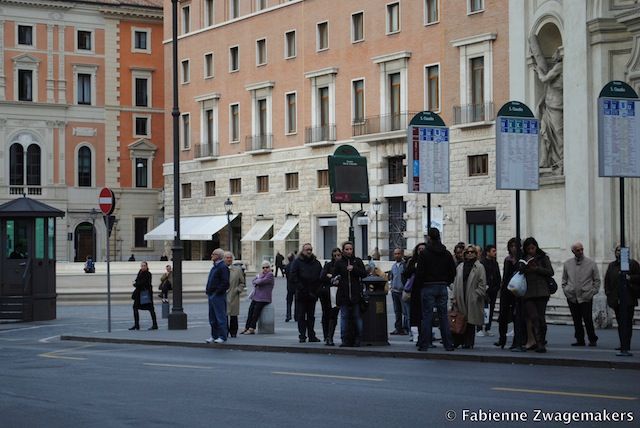
Just over a month ago, on April 1, a modest but interesting project was revealed in the heart of Rome’s historic center. Piazza San Silvestro, located on the corner of Via del Corso and Via del Tritone, was transformed from a crowded bus depot to a wide open space with colossal benches. Now instead of standing around waiting for buses, Romans can sit around waiting for nothing in particular. The square is now a pedestrian only zone. It may seem like a small change, but it shows that city officials are interested in making Rome more comfortable for Romans and tourists alike. It harkens back to the idea of a piazza as a public space where people can gather to meet and socialize. The location of Piazza San Silvestro is particularly convenient, as it is just steps away from the major commercial area of Via del Corso and only a bit farther from historic sites like the Pantheon and Piazza del Popolo. Indeed, Romans are taking advantage of the piazza’s new design to sit down and rest for a while, read a newspaper or a book, or just to have a friendly chat.
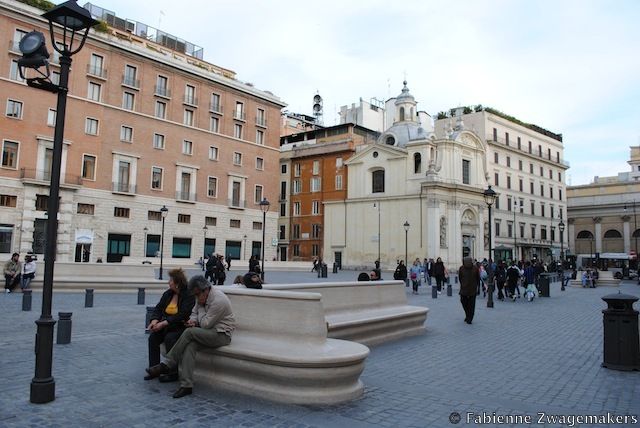
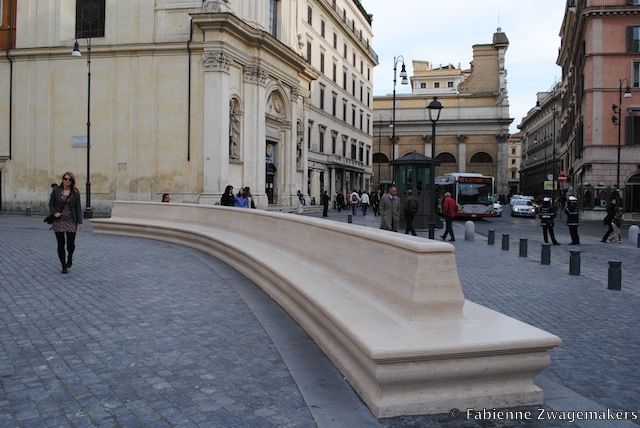
The original design by city architect Luigi Caruso called for a large red abstract sculpture and regimented rows of benches that the public decried as resembling “coffins for the homeless.” Caruso was replaced by leading Italian architect Paolo Portoghesi, who designed the city’s mosque in Parioli, was president of the architectural section of the Venice Biennial from 1979-92, editor-in-chief of the journal Controspazio, and dean of the Faculty of Architecture at the Politecnico di Milano university, among his other accomplishments.
The space is now an interesting juxtaposition of Baroque architecture, as exemplified by the church of San Silvestro, and contemporary design. The long, sleek benches contrast with the ornate decorations on the buildings around them. This typifies modern Italy, and Rome in particular, where the old and the new coexist, if not in harmony, then at least in interesting ways. Though the State is slow to catch up on this trend, many restaurants and shops have found interesting ways to play with the combination of traditional and modern design. At the unveiling, Mayor of Rome Gianni Alemanno said that the piazza will assume a new cultural significance in the historic center, hosting outdoor exhibitions and concerts. Though urban development tends to be slow in Italy, Rome is proving itself at the forefront of innovative architecture and design.
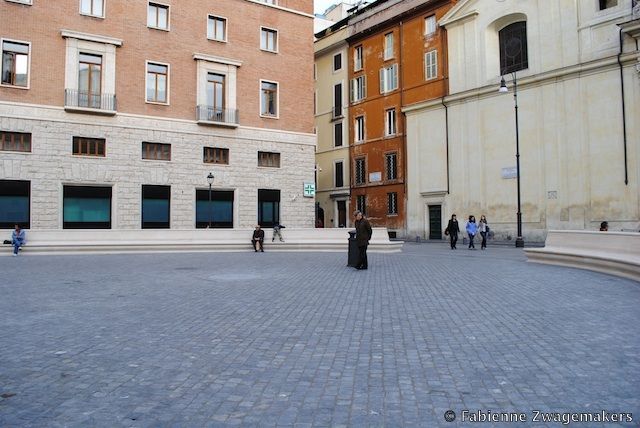
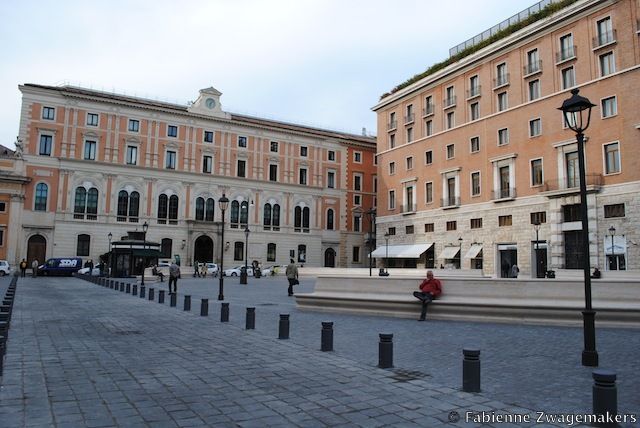
Get in touch with the author @lauraitzkowitz


